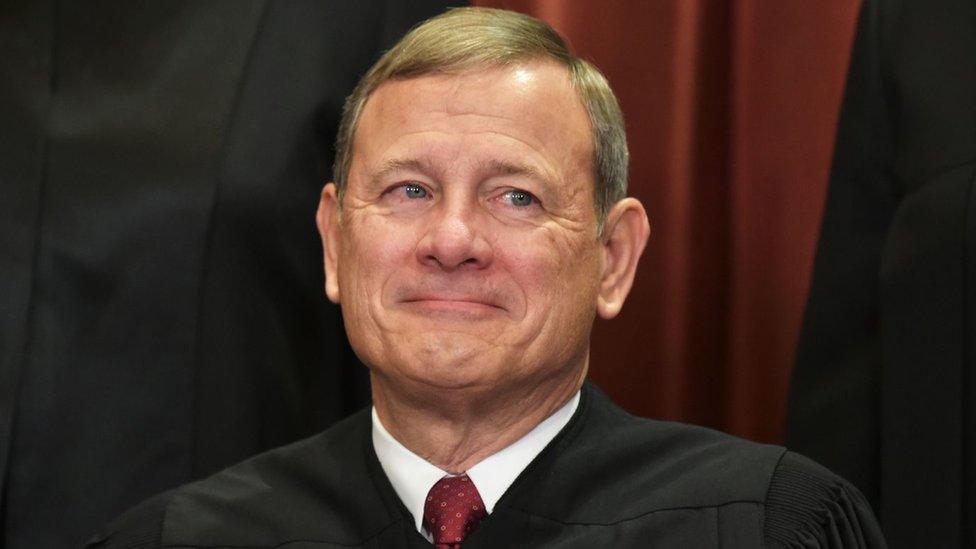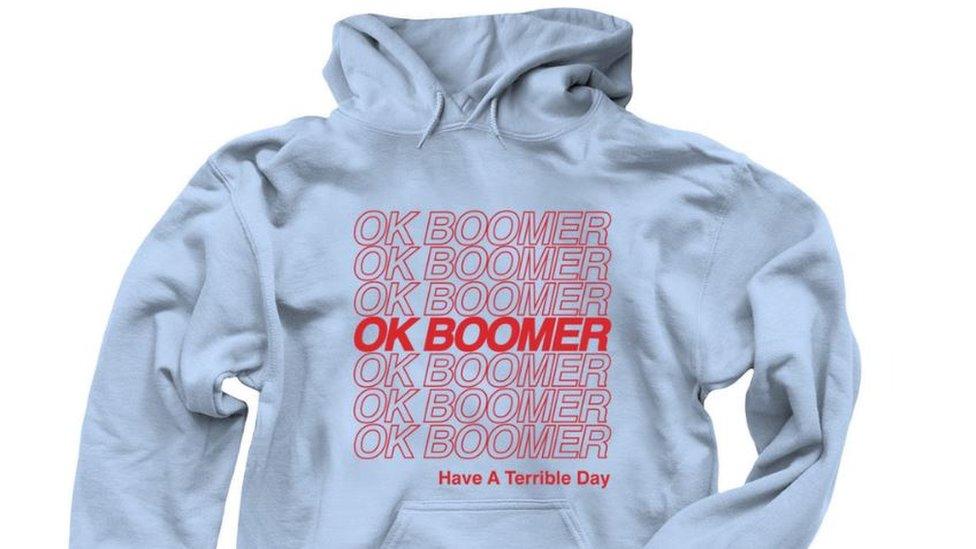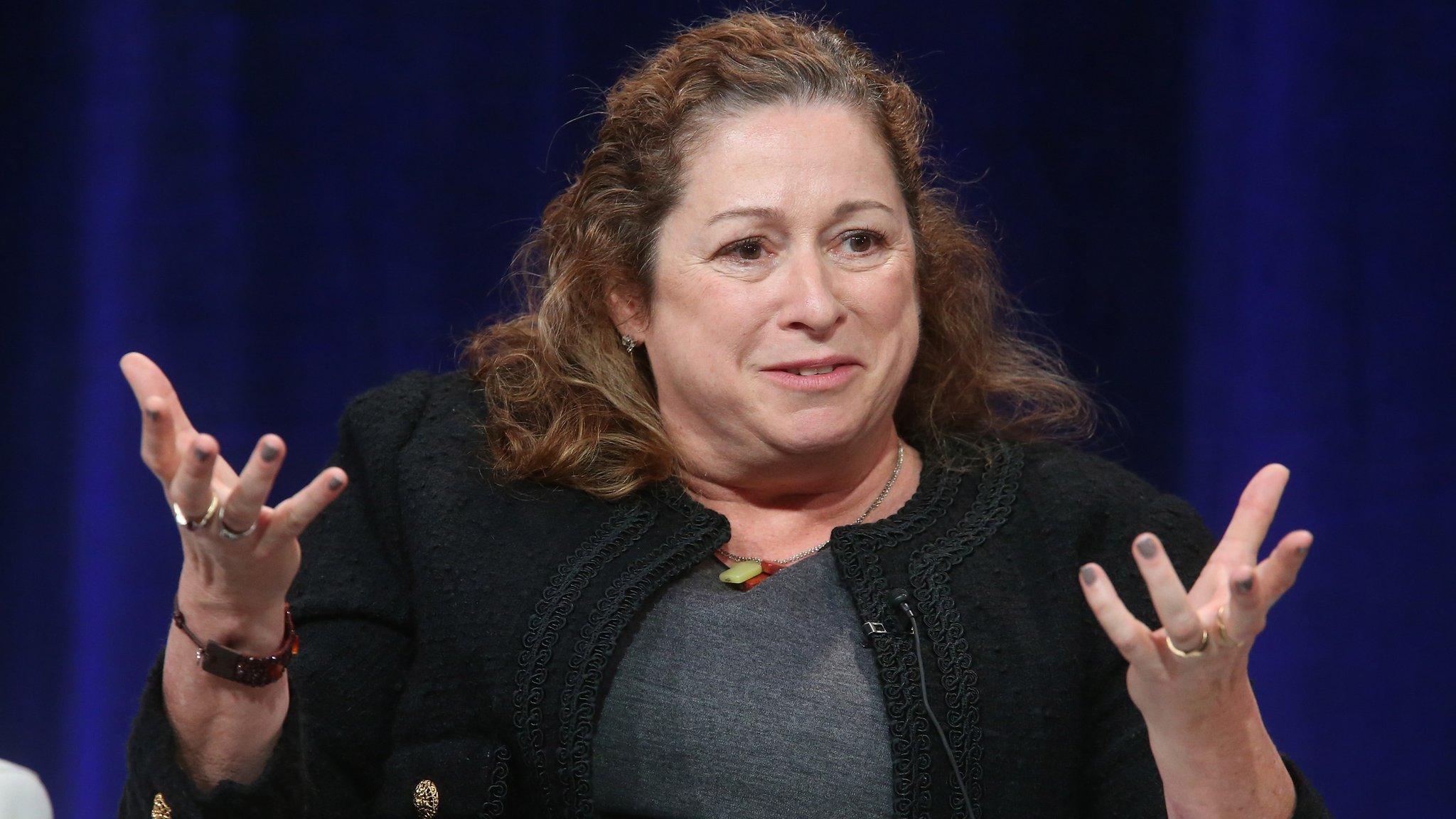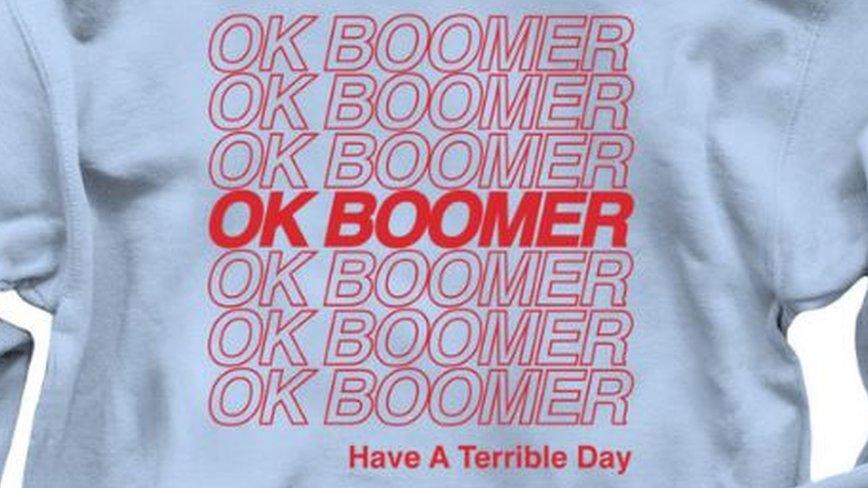'OK Boomer': From TikTok meme to the US Supreme Court
- Published

At 64, judge Roberts is himself a baby boomer
You might have seen it as a meme on Twitter or TikTok but now it has made its way to the US Supreme Court.
The catchphrase "OK Boomer" went viral last year as a tongue-in-cheek dig by young people at older generations.
In the highest US court, it was heard as part of a case about age discrimination.
Chief Justice John Roberts asked the hypothetical question whether said phrase in a hiring process would indicate discrimination.
"So calling somebody a 'boomer' and considering them for a position would be actionable?" he asked, leading to the usually sombre courtroom erupting in laughter.
The 64-year-old justice is himself a member of the baby-boomer generation, a term referring to people born between 1946 and 1964.
The Supreme Court case is about whether an older employee of a government department has been discriminated against because of her age.
Despite the amusement over the justice's question, the woman's lawyer did pick it up as a serious point.
Roman Martinez compared the case to "using ethnic slurs" or "saying unflattering things" about a person, arguing that in a hiring process, it could indeed indicate discrimination.

The phrase has already made it from memes to sweatshirts
In internet parlance, "OK boomer" is a derogatory phrase used by young people against older generations when encountering attitudes perceived as judgemental, conservative or narrow-minded.
It was first used on the platform TikTok and the hashtag #OKBoomer has since been used hundreds of million times on Twitter as well.
The expression made headlines in November last year, when 25-year-old New Zealand politician Chlöe Swarbrick used it in parliament.
During a speech on climate change, she was interrupted by an older member of parliament. Ms Swarbrick paused, gestured with her right hand and said: "OK boomer."
Watch how Chlöe Swarbrick shuts down heckler
- Published21 November 2019

- Published12 November 2019

- Published31 December 2019

- Published7 November 2019

- Published1 November 2019
